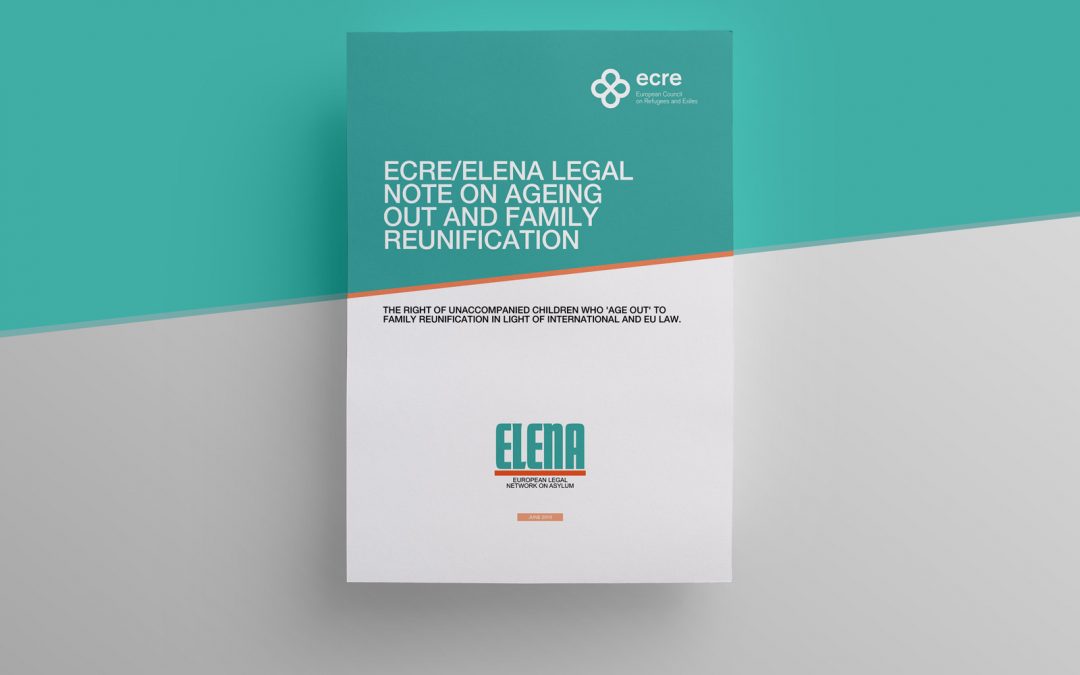ECRE and the ELENA Network have published a new Legal Note on the right of unaccompanied children who “age out” to family reunification in light of international and EU law.
The relevant moment for determining whether an applicant can be regarded as a child can have a profound impact on his or her ability to access and enjoy child-specific guarantees in practice, including regarding family reunification. When unaccompanied children reach the age of majority pending the outcome of the asylum or family reunification procedure (a phenomenon commonly referred to as “ageing out”), they risk being considered as adults and thus being deprived of their rights as unaccompanied children.
The note first provides a brief overview of the “ageing out” issue in view of the number of unaccompanied children seeking asylum in the EU and the delays in asylum determination and family reunification procedures. Secondly, it briefly points to the guarantees for unaccompanied children in relation to family reunification/family unity under the Family Reunification Directive and the Dublin III Regulation. It then indicates the diverse administrative practices and case law among European countries on the decisive date for establishing an applicant’s age for family reunification purposes.
Particular attention is given to the CJEU’s recent judgment in C-550/16 A and S, which is generally considered as a welcome step for the protection of the rights of unaccompanied children to be reunited with their families.
Finally, the Legal Note relies upon international human rights law and EU law to reiterate that States are under the obligation to duly consider the best interests of the child in all actions concerning children, including in relation to their right to family life, even where a child “ages out”.
For further information:
- ECRE/ELENA, Legal Note on Ageing Out and Family Reunification, June 2018
- EDAL, Case Summary: CJEU: Judgment in Case C-550/16 A. and S.
- EU Law Analysis Blog, Childhood’s End? The Court of Justice upholds unaccompanied child refugees’ right to family reunion, 13 April 2018

